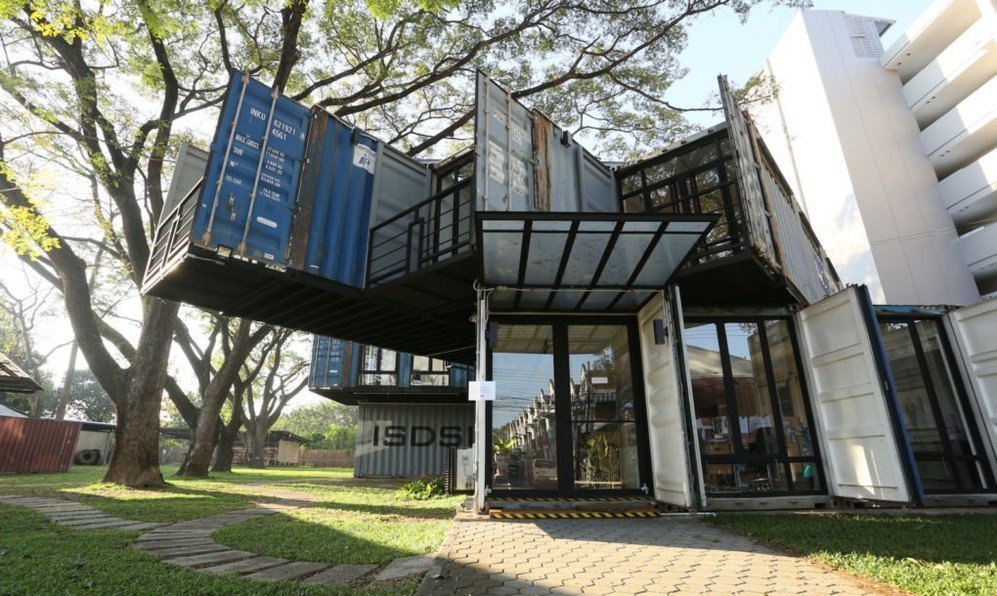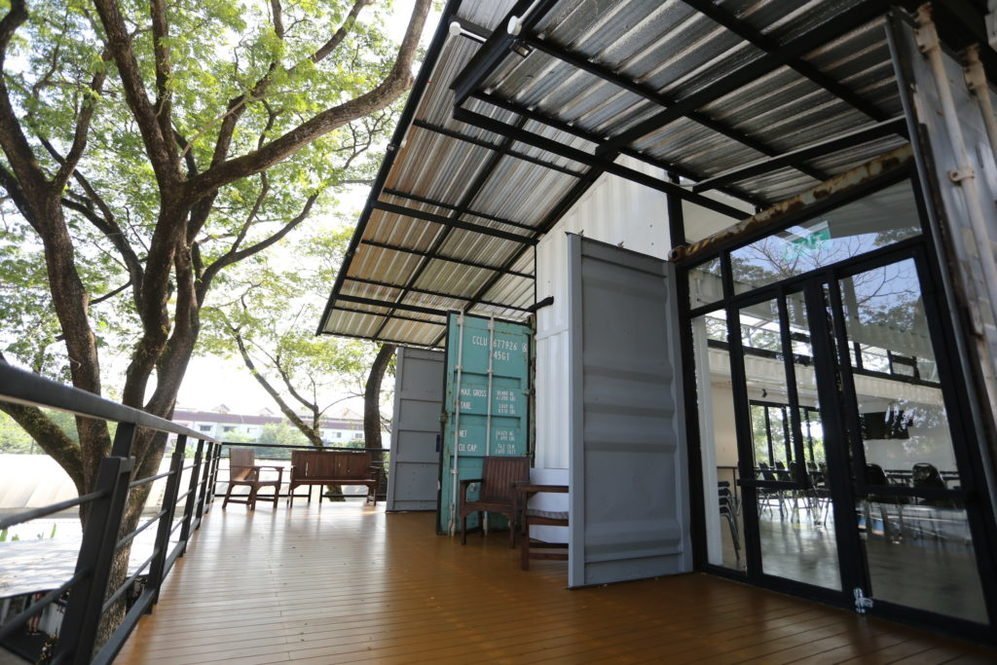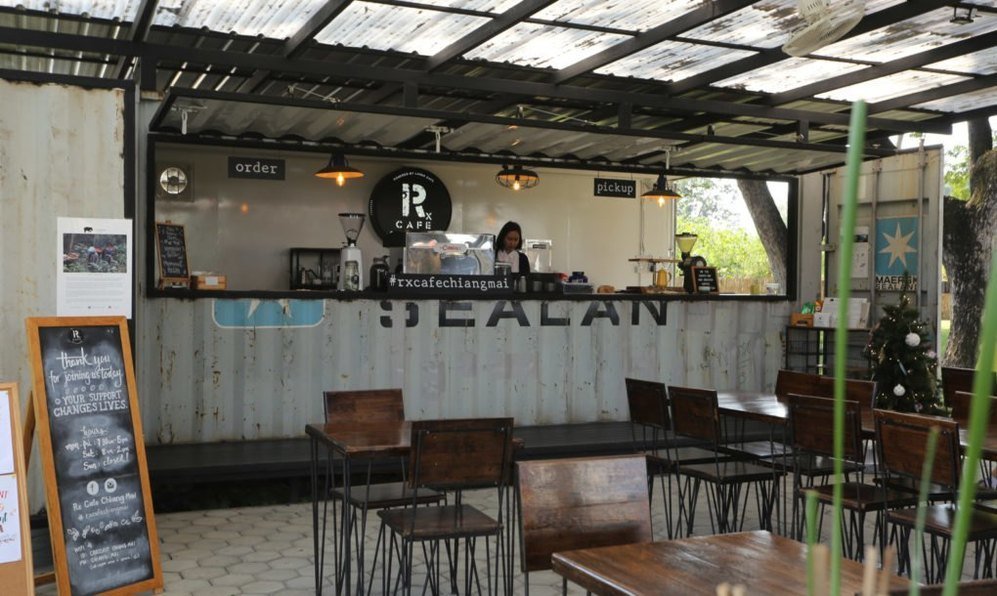The phrase “practice what you preach” seems to fit in perfectly with The International Sustainable Development Studies Institute in Thailand that built their environmentally friendly campus from 22 recycled shipping containers. By building this sustainable infrastructure, students enrolled in the institute gain a clear perspective of the diverse applications and sustainable use of recyclable materials. They also get a chance to apply their knowledge of urban farming, tree conservation, waste management and more on the vast space provided.



To emphasize their idea of sustainability, the institute made a huge effort to decrease the carbon footprint produced throughout the building process. With the help of a skilled crane operator, the construction team was able to place the shipping containers in the middle of the landscape while avoiding the disruption of the environment and saving all but two of the acacia trees. Furthermore, by producing and using the exact amount of concrete required, the team was able to reduce greenhouse gas emissions.
Containers of various sizes and dimensions were handpicked keeping each container’s intended use in mind. The designers then stacked the containers, carved out the windows, doors and decks, and connected them via open-air walkways. Within 9 months, the boring looking containers transformed into an institute containing classrooms, conference rooms, a kitchen and many places for students to relax. Furthermore, none of the metallic scraps went to waste, since the institute used them to create interior walls, doors, sinks, bathroom stalls, a kiosk and a welcome counter in the café and gym.
Apart from using recycled materials even for the most basic purposes, the institute also focuses on low-energy solutions that have the least carbon footprint. This includes using low-energy LED lighting for areas that do not receive exposure from natural lighting. In addition, the campus maintains its temperature through proper insulation. However, if air conditioning becomes a requirement, each module of the campus is facilitated with its own unit, most of which are recycled products from old buildings.
The interior of the campus isn’t the only place that’s sustainable, however. The outside areas around the institute are also quite eco-friendly, especially because it has its own composting facility, an on-campus garden and lots of green spaces, making this campus the perfect example of sustainable infrastructure.
All Images: © ISDSI
h/t: Inhabitat

